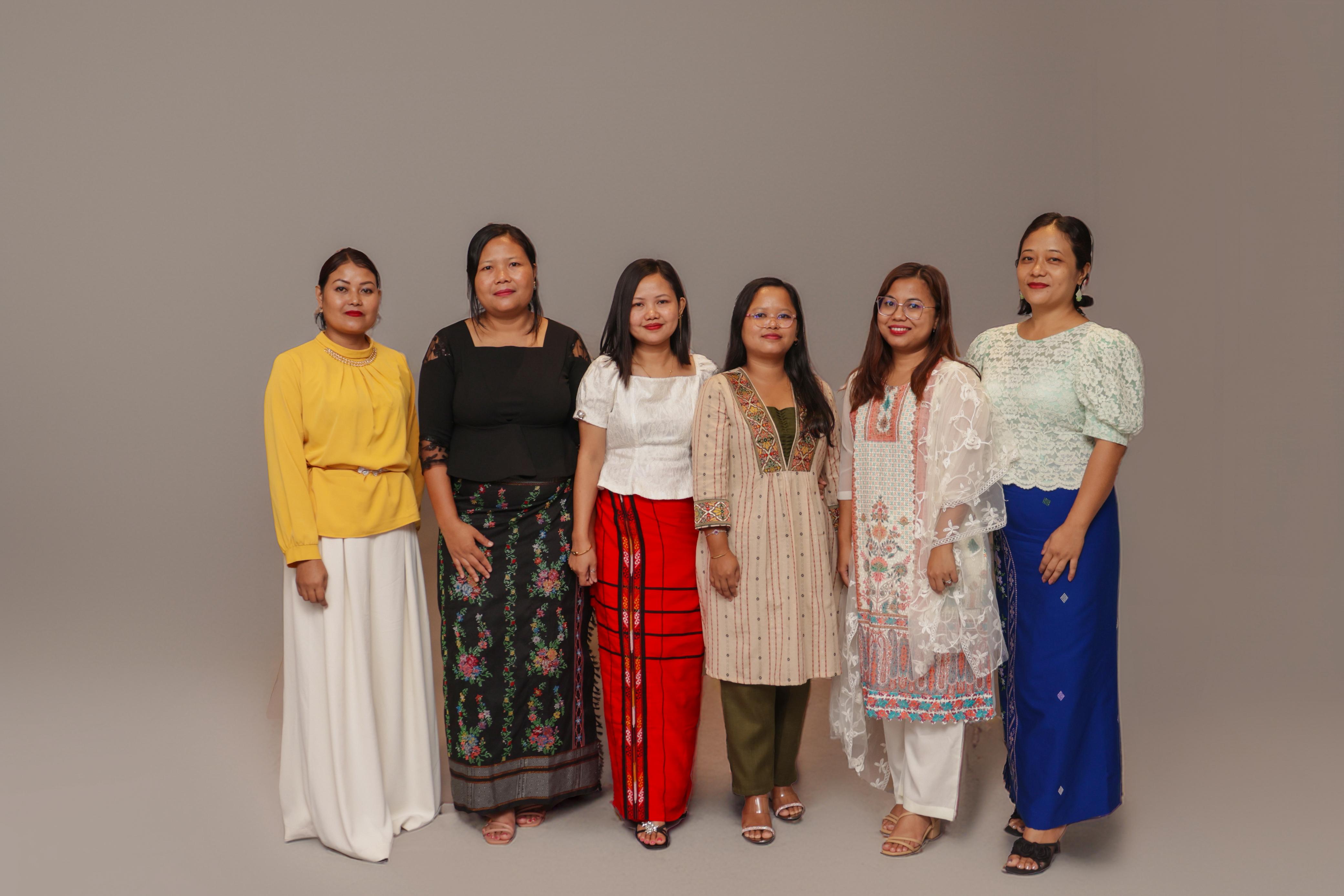
Leadership Wore Muddy Shoes
In South Garo Hills, where rivers often replace roads and mobile networks disappear without warning, a quiet transformation is unfolding — not because it was easy, but because no one gave up. Here, in one of Meghalaya’s most remote districts, a team led entirely by women has done the improbable: they’ve surpassed every target across every component, and they’ve done it by refusing to say “NO.”
At the center is District Project Manager Mumuan Lusha, supported by an all-women team of Block Project Managers — Walmetira, Silgamchiy, Saili, Evelyn, and Albia. Together, they’ve built not just a project, but a movement powered by dedication, humility, and relentless resolve.
In 2023, the plantation achievement stood at just 290 hectares. Most would have been content to meet their mark. But this team pushed further, reaching 818 hectares in 2024, and already 750 hectares in 2025. It wasn’t easy. Rain cut off roads. Villages became inaccessible. But, the staff with the help of experienced drivers who knew when to press forward and when to reverse on narrow, slippery bends, made sure the work continued. Even when it was risky, they reached.
They mobilized when the world was asleep. “We stayed overnight in the villages,” one of the women shared. “Because during the day, no one would be there. The villagers are only available after dinner. That’s when we mobilize.”
The staff adjusted — not just in schedule, but in mindset. They learned that to be heard, they had to first listen and sometimes, that meant sitting with communities well past sunset, waiting for them to return from the fields.
No one ever said no. Not the field staff. Not the MTAs. Everyone knew the challenges, but they chose to walk through them. Whether it was carrying saplings through the night, crossing rivers to monitor springs, or waiting patiently until the last household showed up for a meeting, they did what needed to be done.
EPA targets saw 63 community halls sanctioned. As of August 2025, 29 halls have been fully completed, while the rest are over 80% complete — each one not just a structure, but a symbol of presence in areas long neglected.
In Baghmara block, staff had to cross a river with no bridge just to complete spring monitoring. In Chokpot, villages like Buga Kolgre, Cisengre, and Waro Songetal became completely cut off during the monsoons. Still, they went. They monitored. They delivered.
By 2024, 355 soil and water conservation structures had been completed — including plastic and RCC tanks, check dams, dugout ponds, and rainwater harvesting systems. 146 regular springs and 121 priority springs were being tracked — each visited, each maintained.
In agroforestry, they faced a more delicate challenge: convincing farmers to reduce arecanut trees — their main source of income — to adopt new planting models. But instead of forcing change, the team listened. They trained farmers, explained patiently, and built trust. And because trust was built, change began.
Meanwhile, 9 IVCSs were formed, and 142 SHGs were graded, building the economic foundation for lasting community development.
Behind all this was action, and behind that — belief. The belief that no village was too far, no situation too hard, and no person too small to matter. Financial utilization was proof of execution, not just planning — ₹72,390 in 2022–23 grew to over ₹6.6 crore in 2023–24, and ₹1.84 crore in 2024–25 — each rupee spent tied to people, places, and progress.
This is not a story of easy wins. It is a story of late nights, slippery trails, tired feet, and shared meals in torchlight. It is the story of women who led by doing, of staff who said yes even when the path ahead was uncertain, of drivers who navigated more than roads — they navigated hope.
South Garo Hills has shown that the real work begins where the roads end — and that in even the most remote corners of the state, it is women who are clearing the path.
They have done more than complete targets. They’ve redefined leadership — not with titles, but with tenacity. They’ve shown that women can plan, plant, build, climb, carry, and lead.
That they can be strategists and listeners, mobilizers and record-keepers, torchbearers and bridge-crossers — often all in the same day.
These women didn’t just step into their roles — they transformed them, balancing empathy with execution, and proving that development doesn’t require loud declarations — just quiet, unstoppable will.
In South Garo Hills, leadership wears muddy shoes, and it walks forward — one strong woman at a time.




